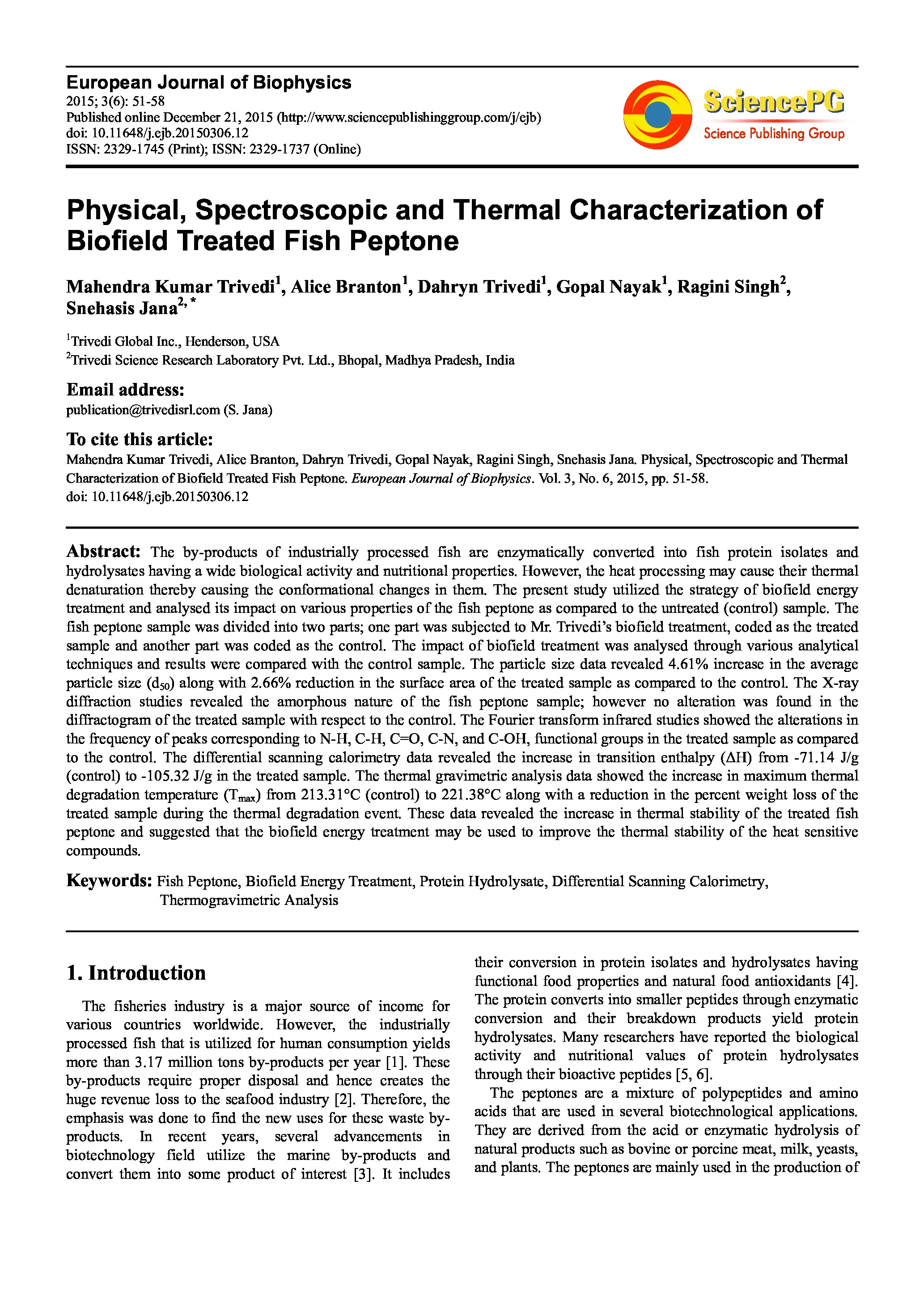Physical, Spectroscopic and Thermal Characterization of Biofield Treated Fish Peptone
Affiliation
Trivedi Global Inc., Trivedi Science Research Laboratory Pvt. Ltd.
Main category
Natural Sciences (Biology)
Abstract
The by-products of industrially processed fish are enzymatically converted into fish protein isolates and hydrolysates having a wide biological activity and nutritional properties. However, the heat processing may cause their thermal denaturation thereby causing the conformational changes in them. The present study utilized the strategy of biofield energy treatment and analysed its impact on various properties of the fish peptone as compared to the untreated (control) sample. The fish peptone sample was divided into two parts; one part was subjected to Mr. Trivedi’s biofield treatment, coded as the treated sample and another part was coded as the control. The impact of biofield treatment was analysed through various analytical techniques and results were compared with the control sample. The particle size data revealed 4.61% increase in the average particle size (d50) along with 2.66% reduction in the surface area of the treated sample as compared to the control. The X-ray diffraction studies revealed the amorphous nature of the fish peptone sample; however no alteration was found in the diffractogram of the treated sample with respect to the control. The Fourier transform infrared studies showed the alterations in the frequency of peaks corresponding to N-H, C-H, C=O, C-N, and C-OH, functional groups in the treated sample as compared to the control. The differential scanning calorimetry data revealed the increase in transition enthalpy (∆H) from -71.14 J/g (control) to -105.32 J/g in the treated sample. The thermal gravimetric analysis data showed the increase in maximum thermal degradation temperature (Tmax) from 213.31°C (control) to 221.38°C along with a reduction in the percent weight loss of the treated sample during the thermal degradation event. These data revealed the increase in thermal stability of the treated fish peptone and suggested that the biofield energy treatment may be used to improve the thermal stability of the heat sensitive compounds.
DOI
10.18147/smn.2016/paper:210
Do you have problems viewing the pdf-file? Download paper
here
If the paper contains inappropriate content, please
report the paper. You will be redirected to the landing page.
